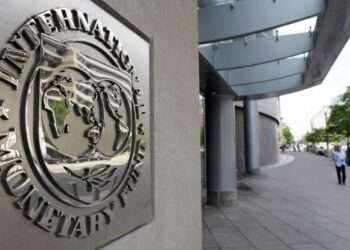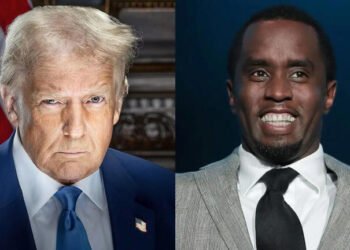A senior UK minister has confirmed that a landmark trade agreement with the United States was finalized just in time to prevent thousands of job losses, describing it as “really good for Britain.”
The newly agreed deal removes crippling tariffs on British steel and aluminium exports to the US and significantly slashes car levies from a towering 27.5 percent to just 10 percent. The move is seen as a lifeline for Britain’s luxury car industry, especially firms like Jaguar Land Rover, which faced steep costs accessing the American market.
Business Secretary Jonathan Reynolds revealed on Thursday night that workers in key manufacturing sectors were merely “days” away from unemployment had the deal not been struck. Treasury Minister Mr. Darren Jones echoed this urgency, affirming, “Yes, it was,” when asked whether the agreement was reached under pressing circumstances.
Responding to concerns that the UK may not be in a better position than before former President Trump’s tariffs were implemented, Mr. Jones offered a practical view.
“If I could rather be in a world where there were no tariffs, of course I would. But that’s just not the world that exists. So it’s not really an option on the table. The option on the table is to have not signed a trade deal with the United States and had higher tariffs, or to have signed a trade deal with the United States and had lower tariffs.”
Mr. Darren Jones
Mr. Jones emphasized that the government had chosen the path that protects livelihoods.
“We’ve signed that trade deal. We’ve got lower tariffs in critical manufacturing sectors in the UK. 150,000 people’s livelihoods that we’ve protected as a consequence of that trade deal. That is, by definition, factually better off as a consequence of the action that this Government is taking to stand up for working people across the UK.”
Mr. Darren Jones

Job Cuts Averted In Critical Industries
Mr. Jones later clarified that the 150,000 figure encompassed not just the direct workers but also the families of those employed in the car, steel, and aluminium sectors. Mr. Reynolds further warned that “we were at risk of thousands of people losing their jobs” without swift intervention — job losses that could have unfolded within “days.”
The breakthrough came during a televised exchange between Labour leader Sir Keir Starmer and US President Donald Trump on Thursday, which was aired simultaneously in both countries. The conversation coincided with VE Day, adding symbolic weight to the announcement.
While the agreement brings relief to British carmakers and steel producers, some hurdles remain. A general 10% tariff on the majority of imported goods, imposed under Mr. Trump’s sweeping “liberation day” declaration, remains intact. However, the UK has entered into further negotiations to address these broader trade barriers.
One area of progress is aerospace. Plane engines and other aircraft parts have been excluded from the tariffs, and British Airways’s parent company has already taken advantage of the relaxed restrictions by ordering 32 new Boeing aircraft from the United States.
Despite the positive reception, some within the industry are still awaiting clarity. Gareth Stace, director general of UK Steel, expressed cautious optimism but said details remain unclear: “There may be issues around ownership, around where the steel is made, and until we see those details we don’t know whether this heavy burden will be lifted from us.”
Nonetheless, he welcomed the news, stating, “It was so important that we’ve got the deal over the line.”
As discussions continue, the UK government is pressing to further soften the trade landscape, aiming to build upon this agreement to secure long-term economic stability for its key industries.
READ ALSO: Olivetheboy Reveals Reason He Featured Sarkodie on Song



















